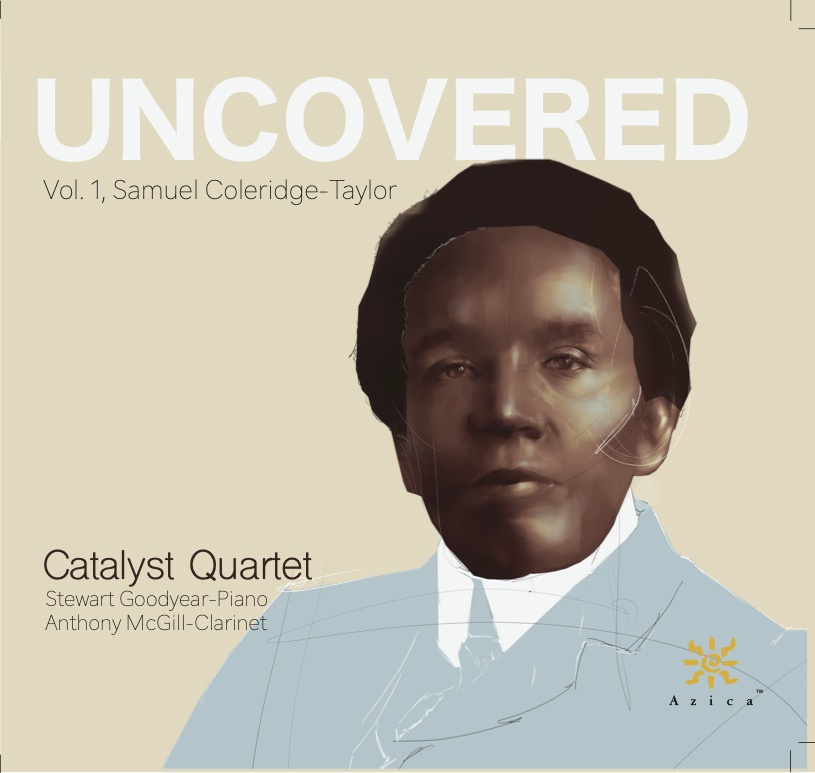by Jarrett Hoffman

The Catalyst Quartet and Azica Records have taken that to heart with the Uncovered series, conceived in 2018 and devoted to music by Black composers. The first volume, released in February, focuses on Samuel Coleridge-Taylor, spanning three beautifully performed, remarkable pieces: quintets on either end featuring pianist Stewart Goodyear and clarinetist Anthony McGill, and a quartet in the middle.
All three selections date from the composer’s time as a student at London’s Royal College of Music in the 1890s, but that’s not at all to say they sound immature. If there’s something youthful about them, it’s their artistic energy — a sense that the composer relished the opportunity to put a bit of himself in every note.
Moments of repose crop up here and there in the Quintet in g for piano and strings, but more often it occupies the higher end of the emotional spectrum, presented in a variety of forms: adventurous, brooding, triumphant, and psychological, the latter in an unconventional Scherzo. The musicians tap into it all with verve, not to mention with sterling technique and intonation.
Set against the rich timbre of the string players, the pianist shines with a lean, sparkling tone. Goodyear’s deep expressiveness comes through whether he’s seizing your attention in a starring role, or gently carving out his own space in the background. Don’t miss his beautiful countermelody as the Larghetto comes to a close, or the twinkling bow of an arpeggio he places on top right at the end.
With their more meditative, even-keeled writing, the set of five Fantasiestücke for string quartet present a perfect contrast to the Piano Quintet. They also, of course, cast a spotlight more clearly on violinists Karla Donehew Perez and Jessie Montgomery, violist Paul Laraia, and cellist Karlos Rodriguez, particularly their emotional and rhythmic interconnectedness. Their awareness of each other’s moving voices is lovely to behold in the “Prelude” and quite virtuosic in the third movement, the intricately interlocking “Humoresque.”
McGill joins them for the Quintet in f-sharp, imbuing his tone with sweetness and coolness to match the dreaminess and firm determination of the first movement. The mood is cinematic: you can picture Coleridge-Taylor scoping out new land from the bow of a boat.
The Scherzo is a delight, full of playful silences that the composer has sprinkled in at surprising places, phrased through skillfully by the ensemble. And the Finale, with its slow section and its sprightly, warm-hearted conclusion, is emotionally powerful. But perhaps the high point of the disc is the gorgeous, reflective second movement, Larghetto affettuoso, where McGill’s tone seems to not only express the present moment of the piece, but also to contain events within its memory.
Published on ClevelandClassical.com June 4, 2021.
Click here for a printable copy of this article



